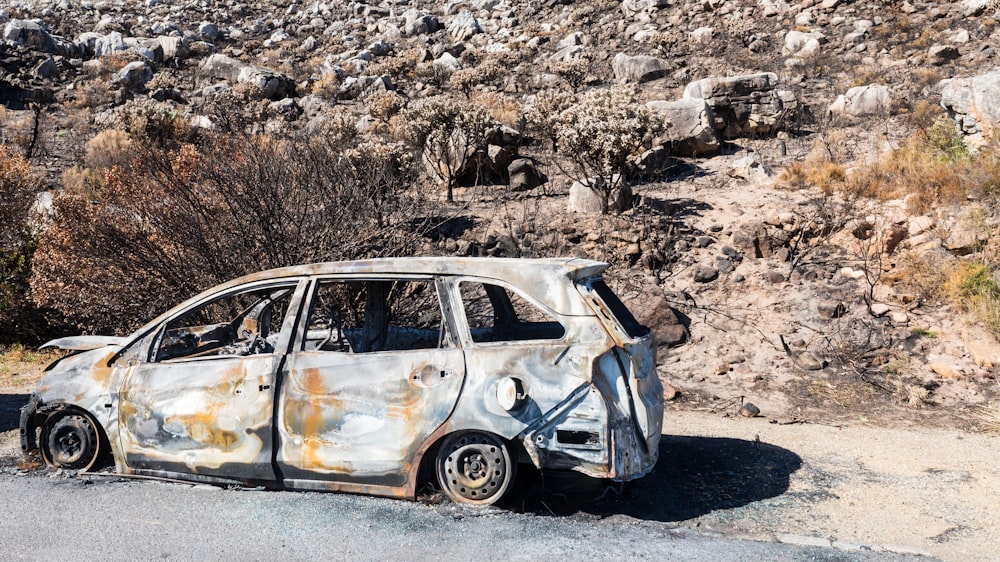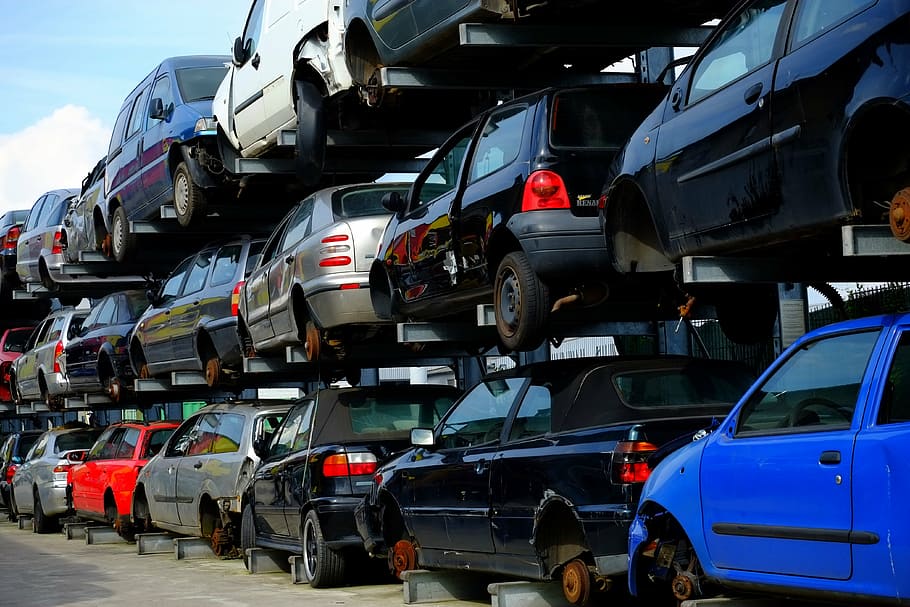Everyone, whether they are miserly or extravagant, likes a good deal. Shopping for a car is much like shopping for any other kind of product. Generally, we try to find the most value for our money. The phrase "rebuilt title" may have caught your eye if you've been looking at listings for cheap used cars. Yet, what does it mean to have a rebuilt title when purchasing a used car? Rebuilt titles on vehicles indicate a turbulent past. If a car has been "rebuilt," it was previously deemed a total loss but has since been repaired and is now road-worthy again.
Even though a car may appear to be in good condition on the outside, shoddy accident repairs can lead to serious issues. You can learn more about the history of the car than the seller is likely to be aware of by running a vehicle title search. This can reveal crucial information that decides whether purchasing a car is a wise investment.
What Is a Vehicle Title?
The state government issues a car title as a legal document to prove who is the rightful owner of the vehicle. They will contain the license plate number, technical details, and the name and address of the owner. Additionally, the title will contain details that can be used to identify the car, such as the VIN, model, make, and year. If a car has a lien on it when you acquire it, the lien holder's information will be on the title.
How Does a Vehicle Get a Rebuilt Title?
Here is the process through which a vehicle can get a rebuilt title:
A Vehicle Is Totaled
There are several causes for vehicles to be "totaled," in which case they are written off because the cost of repairs exceeds the car's market worth. There might be major collision damage to the vehicle, Severe damage from water or hail, Destruction from a fire, or Vandalism or theft-related damage.

Repairs Have Been Made to the Vehicle
Titles for most wrecked cars will read "Salvage" or "Junk," indicating that the vehicle is unfit for usage on public roads. Most vehicles that are brought to a salvage yard are deconstructed for their parts, and whatever is left over is crushed. Yet, some vehicles are restored and re-licensed as rebuilt. Some even make it back into circulation without the vendor ever reporting any prior damage.

The Vehicle Is Inspected
To get a "rebuilt" title that allows a wrecked automobile to be driven on public roads, most jurisdictions require an inspection of the vehicle after repairs have been made. To get a title in South Dakota, for example, you don't need to pass an inspection. Some dishonest individuals take advantage of lenient restrictions in one jurisdiction to remove the salvage title mark, a procedure known as title washing.
An automobile whose title has been branded in one state might be able to have the brand removed if it is moved to a different state where the brand is not recognized. Even if the salvage status has been removed from the new title document through title washing, it will still show up on the report's details.
The Vehicle Gets a New Title
After passing a state inspection, the car can be registered and driven legally again.
Rebuilt Title vs. Salvage Title
There are some similarities between rebuilt titles and salvage titles, although they each apply to different stages in the rebuilding process. A rebuilt title is a far better option than a salvage title, but it's crucial to recognize the difference between the two. Why?
For a better understanding of the features of car titles, you can study the characteristic of each of them. We have compiled a car titles ultimate guide in which you will find answers to all your questions.
Every rebuilt title was once a salvage title. After being declared a total loss by an insurer, a car is classified as "salvaged." Once there, it's likely that the vehicle will be sold for components or scrap metal. Salvage titles are given out for reasons other than serious collisions.
Furthermore, a car may also be considered Salvage if it has been damaged by any of the following incidents: floods, fire, vandalism, theft, or hailstorms. This is why performing a flood check is crucial before buying a used car.
When a salvage car has been repaired, the owner can take it to the Department of Motor Vehicles in their state for a thorough inspection to determine whether or not it is road-worthy. After they are deemed roadworthy again, they are given the "rebuilt" title. Also, you can check the VIN number using our decoder to know whether the car has a rebuilt title or salvage title.

Pros and Cons: Should I Purchase a Vehicle with a Rebuilt Title?
Pros of Purchasing a Rebuilt Title
Lower Cost
In most cases, the price of a rebuilt title car is far lower than that of a comparable vehicle with a clean title. A car with a rebuilt title is less desirable to potential purchasers than a similar vehicle without the rebuilt title, and hence its pricing reflects this. It implies you won't go overboard with expenses. You could even be able to make your complete payment in cash.
The Damage May Be Less Than You Assume
An automobile may be considered a total loss for several different reasons. Cars that have been rebuilt may be alright if the damage was minor and the only parts replaced were high-priced options that the insurance company declined to cover. It could be worth the risk if the damage is minor, but if the frame is deformed or fractured, it might not be. When purchasing a rebuilt vehicle, it is important to verify the VIN and inquire why and how the vehicle was repaired. If you don't feel comfortable inspecting the car yourself, it's worth it to pay a reliable technician to inspect it.
The Downsides of Purchasing a Rebuilt Title
Poor Resale Value
Vehicles with rebuilt titles have a checkered past, which reduces their market worth. A rebuilt vehicle is difficult to resell, therefore most dealerships won't take it as a trade-in.
Obtaining Finance Can Be Challenging
Blue Book values do not apply to vehicles declared as salvage. Lenders might refuse to provide financing for a rebuilt title vehicle although the vehicle has been repaired and has passed state inspection. As a result of concerns about the car's repair history or its roadworthiness, certain lenders may be unwilling to provide financing for a vehicle that has been restored. Lenders willing to look beyond a salvaged title for a car typically have very high-interest rates and provide only very short-term financing options.
Not Easy To Insure
Insurance companies often refuse to cover vehicles with rebuilt titles. Even if they do, it's unlikely that they'll provide comprehensive or collision coverage for your property. You will need to pay for the cost of repairs out of your own money if you are involved in an accident.
The Vehicle Warranty is Usually Nullified
Having a car declared a total loss or titled as a salvage vehicle usually nullifies the manufacturer's guarantee. This implies that even if the automobile is nearly new, you might be responsible for expensive repairs that could arise from hidden damages.
Obtaining Insurance with a Salvage or Rebuilt Title
Due to the salvage-titled vehicle's unsafe condition, insurance may be difficult to come by. Rebuilt title insurance, on the other hand, is more accessible, although it comes with its own set of conditions. Some insurers may only provide liability coverage once the essential repairs have been done. Due to the difficulty in accurately assessing the extent of the vehicle's pre-existing damage, many insurance companies will not provide full coverage for Salvage or Rebuilt vehicles.
There is little probability that this title would come with collision and comprehensive coverage, which are add-ons to regular vehicle insurance plans. The car's value reduces after getting a rebuilt title, which indicates that it is no longer in its original, undamaged condition. In addition, insurance companies will consider a car with a rebuilt title to be a higher risk on the road because of the possibility of hidden or concealed damage.
After you locate an insurer willing to cover a vehicle with a rebuilt title, you might be able to take additional measures to increase the scope of your coverage. You may be able to present further evidence to your insurance that will convince them to cover a car with a rebuilt title. When purchasing a car with a rebuilt title, it is expected that you will have documentation showing that the vehicle has been repaired and is in good functioning condition. This can be in the form of a statement from a skilled technician, photos documenting the vehicle's current condition, or repair invoices.
Should You Consider Purchasing A Rebuilt Title Vehicle?

Usually, it's best to keep your eyes open for other opportunities while you're searching. Investing in a used automobile that has been repaired might pay off in some situations. If you own an auto repair company and are on the lookout for quality auto parts, this may be your lucky break. But keep in mind that every choice is personal. Consider the case of someone who needs an automobile immediately but has a limited budget.
For this reason, before making a purchase, it's essential to evaluate why you need it in the first place. Although a car with a rebuilt title may have passed state inspections, this is no assurance of its long-term safety. Before choosing a car, it's crucial to conduct some homework and give it a full once-over.
The frame and alignment of an automobile are two indicators of its overall quality that can help you decide if buying it is a good idea. Experiencing significant exterior deterioration on a car might be the first warning indication that it is a dud. As an added caution, a misaligned car might develop issues down the road. Last but not least, have a certified mechanic examine the motor.
Frequently Asked Questions
Rebuilt title vehicles are typically less expensive than comparable used automobiles since they have already been damaged. Some professionals even claim that you may save up to half the price of a new automobile by purchasing one that has been rebuilt.
There are several benefits to having a rebuilt title rather than a Salvage one. When you purchase a secondhand automobile with a rebuilt title, it is immediately ready for registration, insurance, and driving without too many hassles. Salvage titles seldom have that kind of guarantee. The substantial damage that results in a salvage title means that the vehicle may not be safe to drive.
Vehicles with salvage titles are not exempt from recall efforts, as stated by the National Highway Traffic Safety Administration. Yet there are times when the safety recall is "not relevant to the salvaged car and the automaker would not have any duty to fix the vehicle."
If your automobile has a rebuilt title, it was probably severely damaged at some time and written off as a total loss by your insurance provider. If the same car is offered for sale again with a rebuilt title, it means that someone took the time and trouble to repair or rebuild it.
Many states have different rules, some of which are more rigorous than others. The easiest way to find out how to get a rebuilt title is to get in touch with your state's department of motor vehicles. In most cases, though, you'll need the following to get the title changed to "rebuilt" once repairs have been made: A certificate of salvage from your auto insurer A reputable third-party auditor examines the premises. A check by relevant local or state authorities An independent witness's signed report of the work done Certification of ownership But, these rules may differ from state to state, so it's crucial to learn what regulations you'll need to follow to receive a rebuilt title in your state.
Yes. In reality, demand is increasing for rebuilt titles. Finding someone to buy your vehicle shouldn't be difficult, regardless you sell it independently or to a dealership. Be sure to maintain the car history report you got at the time of purchase, and keep records of any maintenance or repairs performed on the vehicle.







